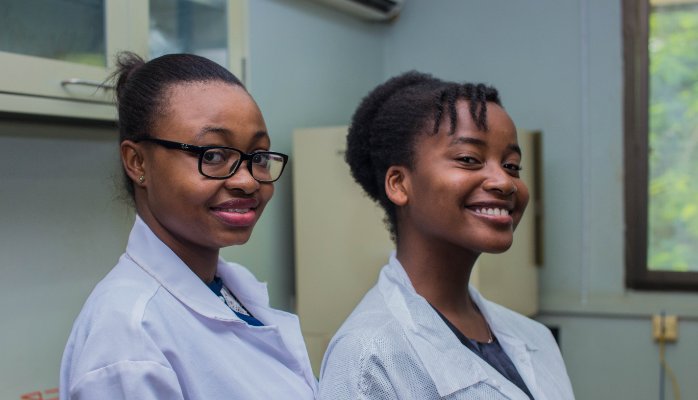
College Students Can Bring Us Closer to Gender Equality
by Unboxed Philanthropy
With the remaining obstacles to gender parity, it can be easy to feel discouraged. But optimism is among the most essential ingredients for lasting progress. To help girls and women get ahead, it’s important to appreciate the moments when we get it right.
One trend that has me particularly excited: the forward-looking, gender inclusive work of Millennials. Today’s young people care about much more than just streaming music and upgrading their smartphones. They’re also serious about the necessary work of empowering women.
One of the best things about this generation is that they aren’t waiting to graduate from college to tackle issues close to their hearts. Some of these students get their early start by participating in the Clinton Global Initiative’s annual meeting of CGI University. CGI U participants from around the world address some of the greatest challenges of their time—including gender inequality—by making what we call Commitments to Action. Since 2012, more than 260 of these students have shown their character by creating commitments to improve the lives of girls and women.
We have a long way to go to achieve a world where social, economic, and health outcomes are no longer impacted by gender. Here are a few college students whose work should inspire us along the way.
Empowering Indigenous Women with Opportunities for Entrepreneurship
The long-brewing disparities faced by indigenous women in Mexico have been recognized by public health researchers, NGOs, and even the Pope. The challenges are also of great concern to Ana Karen Medina Silva, who grew up in Atlanta, Georgia and was surprised by the inequalities she found upon returning to her native Mexico at 18. “Going back to Mexico was life changing,” said Silva. “I knew I wanted to be part of the change that could improve the lives of some of the most marginalized women in my country.”
After enrolling in the Universidad del Valle de México, the International Affairs major made a CGI U commitment to help strengthen the economy of indigenous women in the community of El Carrizal, where they face displacement and poor economic prospects. Silva works with the women to create a chili seasoning sourced from their community. She also helps them set up their own sustainable co-op and sell the seasoning to high-end grocery stores in Mexico through a project called Chiltepetl. The social enterprise provides economic and financial security so the women can steer their own destinies.
Silva, who launched her CGI U commitment at 23, encourages other college students to see themselves as change agents as well. “You are never too young to act on what you believe,” she said. “It’s our responsibility to fight for equality and social justice. As long as you have passion, dedication, and resilience, anything is possible.”
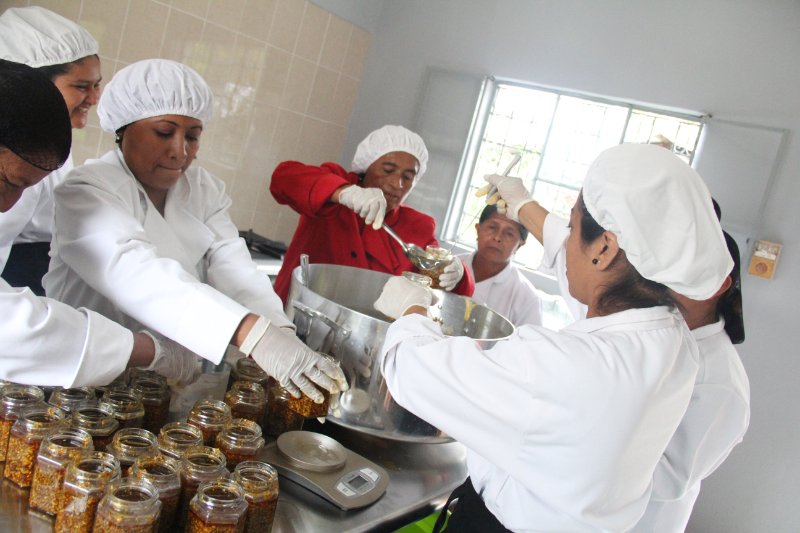
(Photo Credit: Chiltepetl, Gourmet Seasoning)
Transforming the Outdated Look of Leadership
Gender inequality has no place in the 21st century, according to young Dominican-Americans Yulkendy Valdez and Josuel Plasencia. The Babson College students want the world to know that diversity and inclusion are the future of effective leadership.
For their CGI U commitment, Valdez and Plasencia launched Project 99. “Our vision is to develop the next generation of inclusive leaders for the new full-participation economy,” said Valdez. “We believe leadership does not look any one way. If we want to improve and move forward, we cannot leave more women behind.”
This summer, Project 99’s programs will bring diverse young people together to engage in an entrepreneurial curriculum focused on creating positive change in their communities. Valdez says that the possibilities for social impact are endless for her generation.
“I believe we have an incredible opportunity as millennials to make a difference,” she said. “We get to live in a world where constant change and innovation is not only required but embraced by most. We are the generation that can ensure that everyone regardless of gender can live a life of dignity and autonomy.
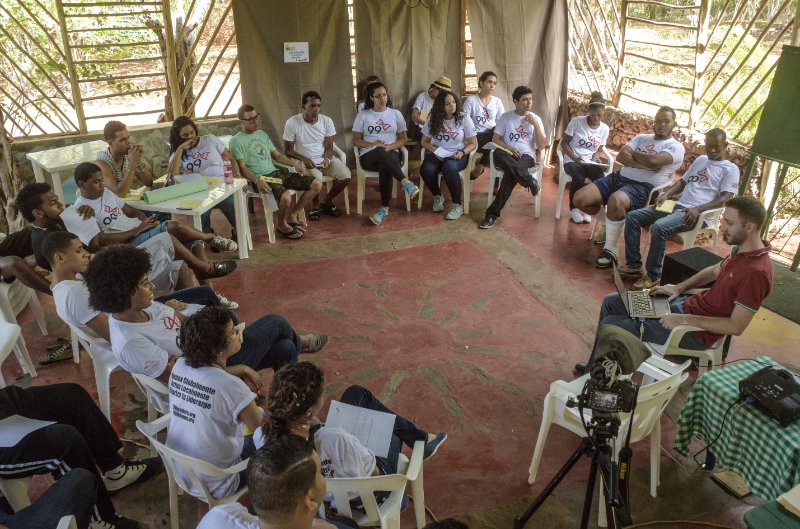
(Photo Credit: Project 99)
Making STEM More Inclusive Across Continents
Entrenched gender norms and unconscious biases have long served as obstacles to women’s advancement in fields involving science, technology, engineering and math (STEM). Last year, data from No Ceilings: The Full Participation Project revealed that although U.S. girls and boys perform similarly in math and science, women are much less likely to graduate from college with a STEM degree than their male counterparts.
Christine Schindler, who graduated last year with a biomedical engineering and global health double degree from Duke University, knows the barriers all too well. “When I decided I wanted to study engineering,” she said, “I grew discouraged through comments from my teachers and peers telling me I was ‘too creative to be an engineer’ or ‘engineering is a guy thing—isn’t that about building bridges and cars?’”
In response, Schindler launched Girls Engineering Change as her CGI U commitment as an undergraduate. Through the mentorship program, she exposes middle and high school girls to engineering by pairing them with university students and challenging them to assemble a device designed for social impact. These devices have included solar-powered USB chargers for disaster relief settings, calculators for low-resource schools, and small electronic games for local children’s hospitals.
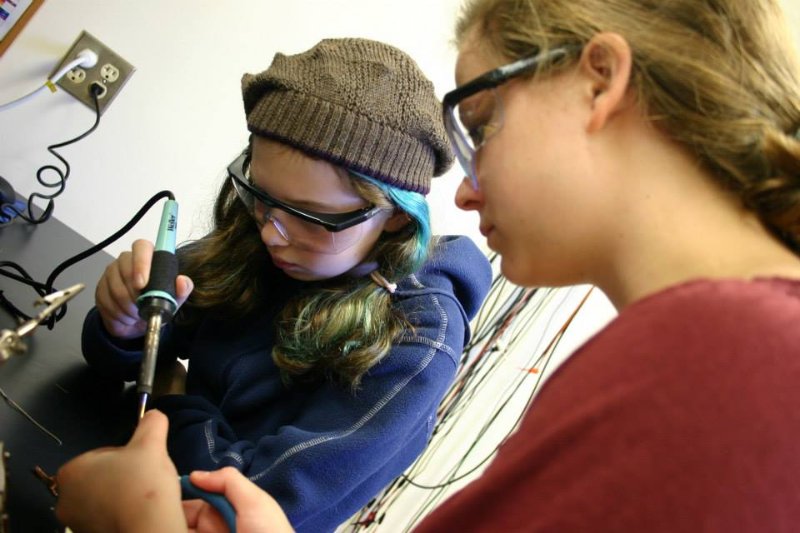
(Photo Credit: Girls Engineering Change)
Gender disparities in STEM are a big problem in many African countries as well, says Kwadwo Sarpong, a Ghanaian student at the Icahn School of Medicine at Mount Sinai. “Growing up, girls tend to be discouraged from pursuing careers in STEM, making them question if they have the capacity to do so,” he said.
Sarpong fondly recalled the intellectual curiosity of the female students he grew up with in rural Ghana despite their limited options. This, coupled with what Sarpong calls a “slow but progressive shift in Ghanaian society surrounding gender role expectations,” gives him hope that one day, African men and women can be partners in finding new cures, treatments, and discoveries in science.
In an effort to be a catalyst for such change, Sarpong and Shadrack Frimpong, a recent graduate from the University of Pennsylvania, launched the African Research Academies for Women as a CGI U commitment. Their first academy was established in Accra in May 2014, and has already provided several female undergraduates with the financial and academic support to pursue STEM research.
“Bridging the gap between male and female researchers in Africa is critical to increasing innovation and societal impact throughout the continent,” said Sarpong. He and Frimpong now have their eyes set on opening an academy in Nigeria.
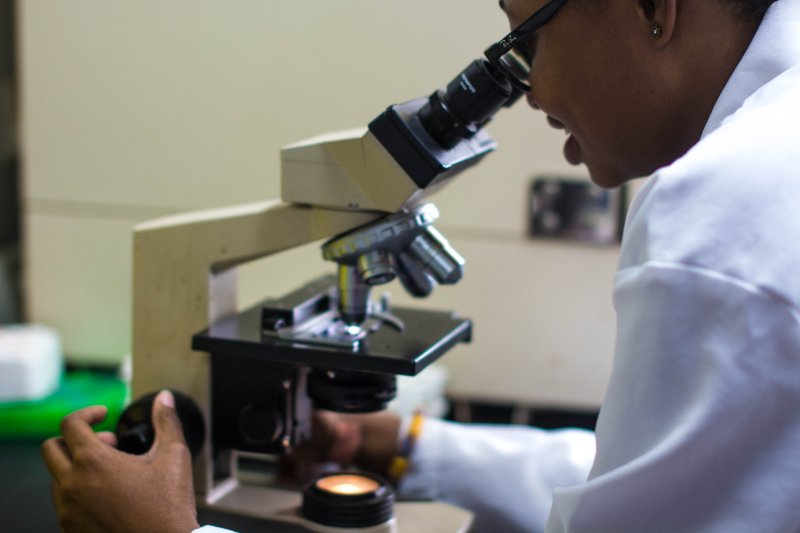
(Photo Credit: African Research Academies for Women)
These are just a few of the thousands of CGI U participants who have made a positive impact on their communities. This year, Chelsea Clinton will host CGI U 2016 from April 1-3 on the campus of UC-Berkeley.
See more at: https://www.clintonfoundation.org/blog